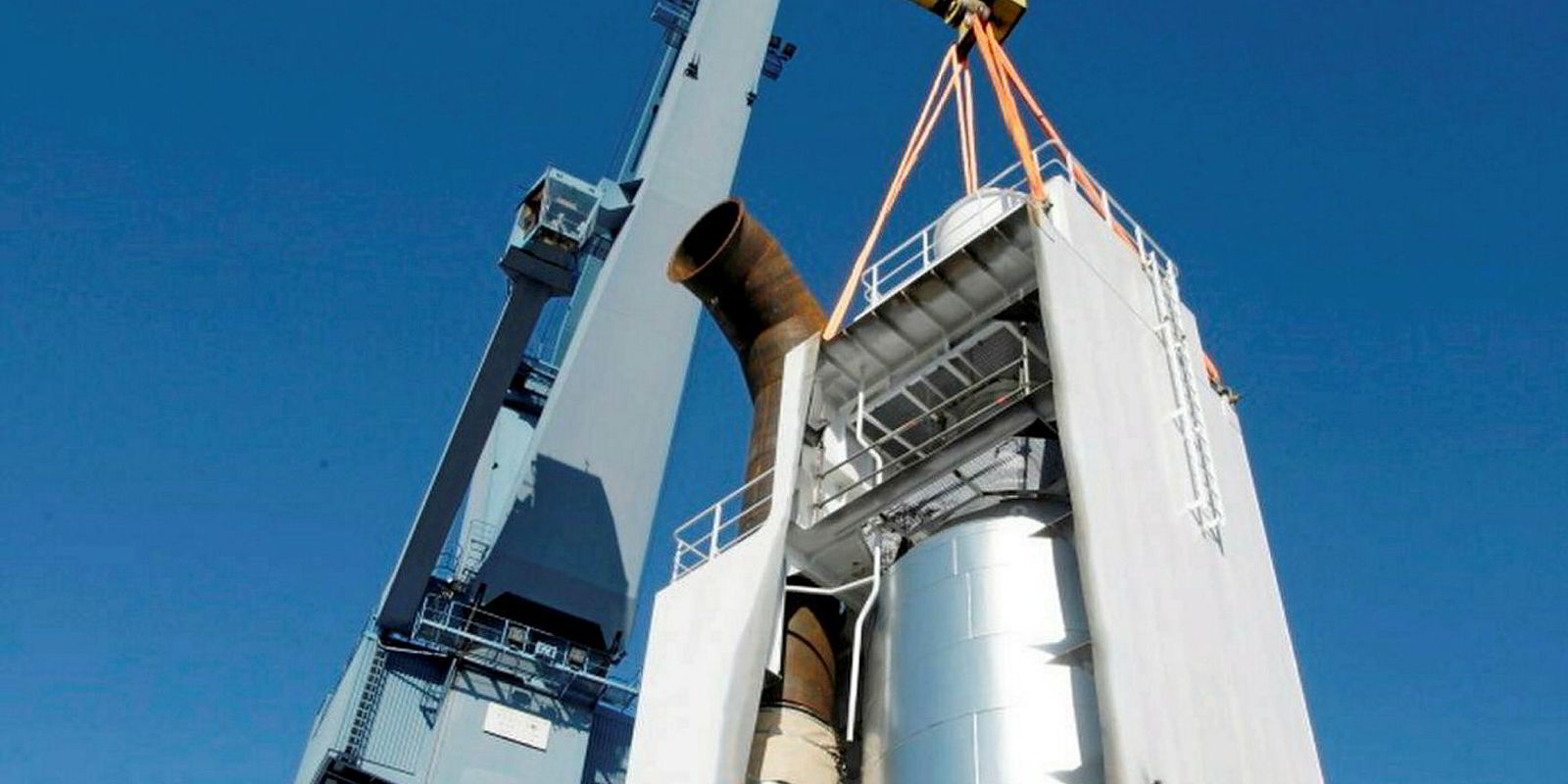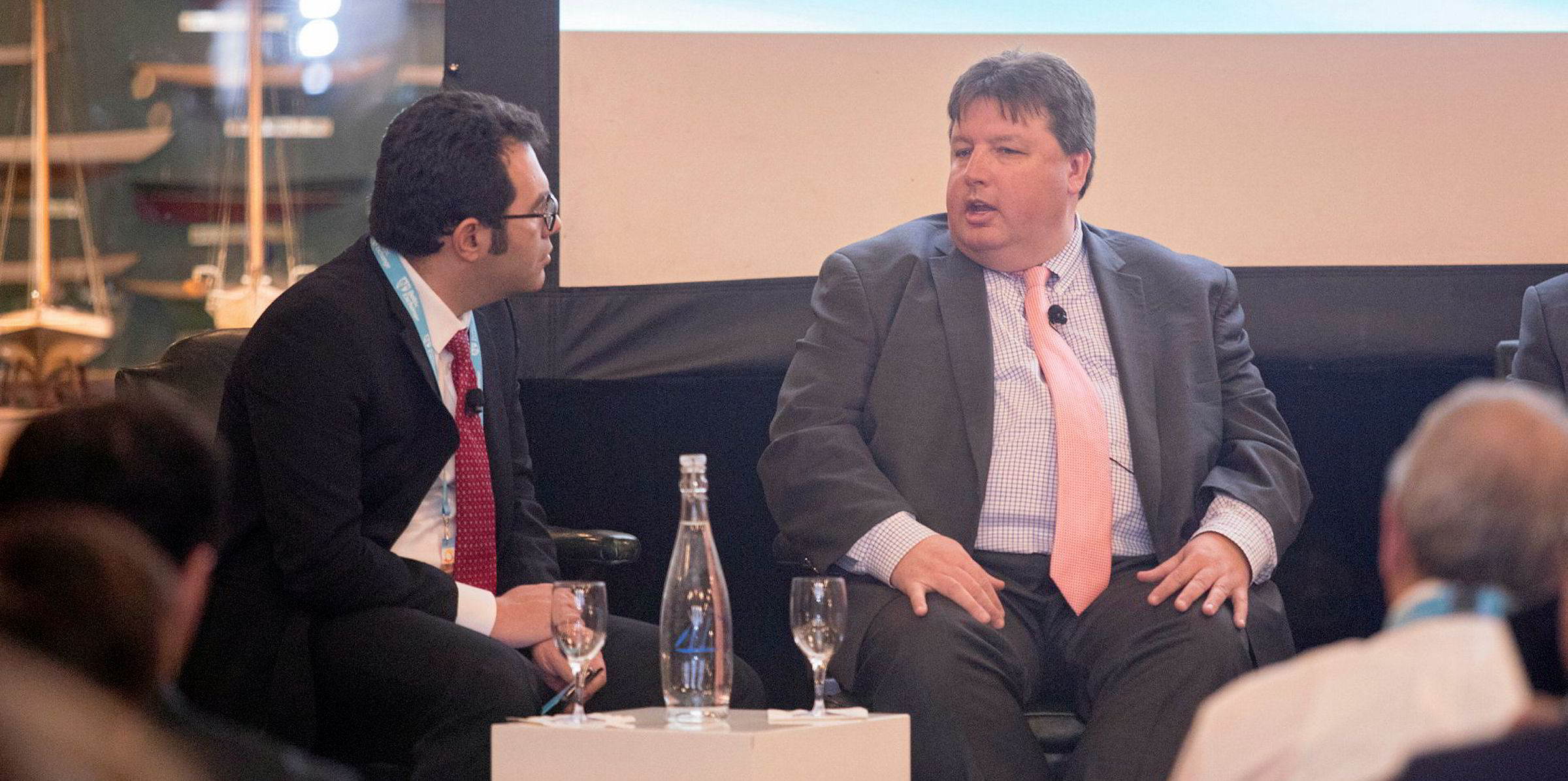The biggest worry with adapting to the pending IMO 2020 sulphur cap is not what the shipowners know but what they do not, according to an industry executive.
"I'd have to say the unknowns," Koch Supply & Trading vice president of shipping Andrew Smiley said today at TradeWinds IMO 2020 Disruption Forum in New York City.
"I really believe there's going to be a lot of situations and conflicts with the whole transition starting three or four months before January 1 and six months after it goes into effect," he said.
"I think lawyers are going to get involved."
He said operations teams will be "stressed" to the degree that their companies are prepared to meet the IMO 2020 deadline.
Some shipowner concerns include cleaning bunker tanks out in time to switch to burning marine gas oil, scrubber breakdowns and shipowners waiting to the last minute to adhere to IMO 2020.
Despite the concerns, the market for scrubbers should remain robust as many shipowners look to make money off the price spread between high-sulphur fuel oil and marine gas oil, said Ken McClelland, technical director for scrubber maker Pacific Green Marine Technology.
"As long as the competitive advantage exists, the market will continue to move," he said.
He said scrubbers take ship exhaust particulates from the air and put them directly into the ocean, thus protecting people's health.
He also mentioned a recent Japan study that shows that scrubber effluent poses no harm to marine life, contrary to scientific studies that the wash water may be harmful.
"It does not have the impact on populations should those winds be onshore," he said.




